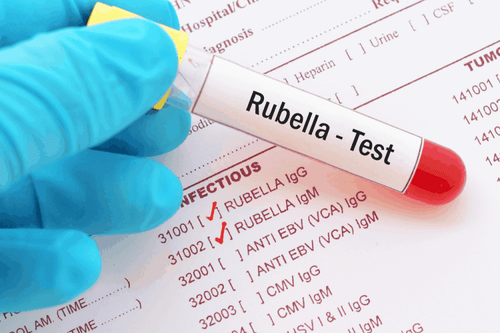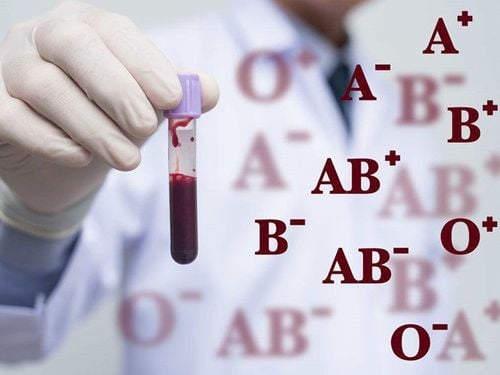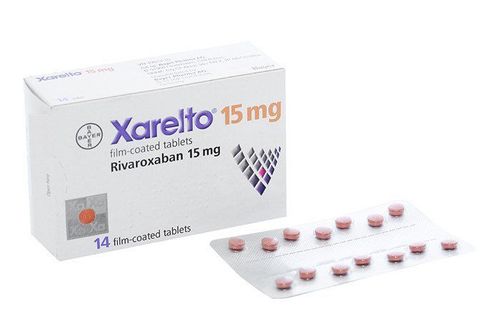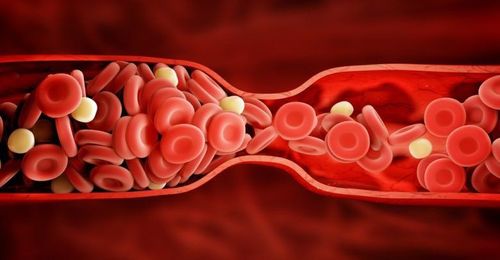This is an automatically translated article.
Children's blood tests let the doctor know what is going on in the child's body. Whether it's to check for a general health problem or to prevent serious illnesses, blood test numbers in children are essential diagnostic tools.
1. When is blood test needed for children?
The pediatrician may order blood tests to look for signs that indicate potential problems. Many symptoms are caused by signs that are not easily detected during a physical exam. Blood tests are important for children to help doctors take a closer look and detect problems early. Here are common reasons for a doctor to order a blood test:
To look for abnormalities in the red and white blood cell & platelet counts. Look for chemicals in the body that cause allergies To check blood type Measure blood sugar for children in case your family has a history of diabetes or to monitor type 1 diabetes in children. Measure levels of excretion products such as urea to make sure your child's kidneys are working properly. Estimate the amount of electrolytes and enzymes to make sure your child's liver is working properly. Estimate the child's acid-base balance and measure the saturation of oxygen, carbon dioxide, and nitrogen in the blood. Screening for infections.

Các chỉ số xét nghiệm máu ở trẻ em là công cụ chẩn đoán cần thiết
2. Blood test indicators in children
Here are some of the most important blood tests for children recommended by pediatricians.
Complete blood count : This test helps to monitor parameters such as the number of red blood cells, white blood cells, platelets and the percentage of blood cells in the blood plasma (hematocrit). These tests are quite frequent and are also some of the most important blood tests for children. A complete blood count is essential to confirm some diagnoses, screen for potential diseases, and also detect genetic diseases. Blood group test: Everyone's blood cells have specific markers on their surfaces called antigens. These antigens are classified into four different types according to the ABO blood grouping system. The different antigens are A, B, AB and O. Based on these antigens, there are four blood types found in all humans. Another important antigen that helps to classify blood types is the Rh antigen. A child is either Rh positive or Rh negative depending on its presence. Nearly 80% of the population is Rh-positive, while the rest do not have this antigen. Blood type testing is one of the most important blood tests for children and helps: Keep medical records for the future. Looking for people who are related by blood. In the case of blood transfusion. Maintain the safety of both mother and child in the event of Rh antigen mismatch. Check blood sugar: Blood glucose level is an important marker for diabetes and an important blood test for children and adults. Most children with this condition develop type 1 diabetes. This condition is caused by the immune system destroying the insulin-producing alpha cells in the pancreas. Recently, some children have also been diagnosed with type 2 diabetes. This condition is commonly seen in obese, unhealthy adults and middle-aged adults due to a phenomenon called insulin resistance. This increase in early-onset type 2 diabetes is attributed to unhealthy lifestyles, bad habits, and reduced physical activity. Blood tests for allergies: Although skin prick tests are the preferred form of allergy testing, blood tests are still used in infants and young children. Allergy testing with a blood sample is also one of the most important blood tests in cases where a pediatrician suspects serious allergic reactions. Blood tests for allergies revolve around two main components: Detecting allergy-causing chemicals in the blood, called antibodies. Antibodies called Immunoglobulin E or IgE are involved in allergic reactions. Detect an increase in allergy-specific white blood cells, such as eosinophils. Comprehensive Metabolic Panel Test: This normal blood test gives the pediatrician a complete view of how a child's body is functioning at the smallest levels. Metabolic panels are some of the most important blood tests for children, as they are a direct indicator of liver and kidney function. The tests also provide detailed information about the body's acid-base balance and blood buffering system that helps to keep essential salts at optimal levels. Here are the important values for this test: Sodium: 136 - 144 mEq/L Potassium: 3.7 - 5.2 mEq/L Chloride: 96 - 106 mmol/L Calcium: 8.5 - 10.2 mg/dL Blood sugar: <100 mg/dL (fasting) Carbon Dioxide: 23 - 29 mmol/L Blood nitrogen: 6 - 20 mg/dL Creatinine: 0.8 - 1.2 mg/dL Alkaline Phosphatase (ALP): 44 - 147 IU/ L Alanine Aminotransferase (ALT) ): 7 - 40 IU/L Aspartate Aminotransferase (AST): 10 - 34 IU/L Bilirubin: 0.3 - 1.9 mg/dL Albumin: 3.5 - 5.4 g/dL Total Protein: 6 - 8.3 g/dL Hemoglobin Test: Hemoglobin is a protein found on the surface of red blood cells that is responsible for transporting oxygen to different parts of the body. Protein contains iron and metals necessary for the production of this protein in the body. The hemoglobin level test is an important blood test for children because it allows the doctor to see if your child has iron-deficiency anemia. In cases where your child has chronic weakness, pale fingernails, or pale skin discoloration, your doctor may recommend this test. The hemoglobin test along with the hematocrit level from a complete blood count helps your pediatrician assess the iron levels in your child's body. Screening for heavy metal poisoning: Metals such as lead and cadmium have been used as pigment combinations in paints and other objects such as crayons. The use of these metals in pigments was banned after the 70s, however, some children are still prone to sensitization due to their environment. In case you live in an area prone to heavy metal contamination or live in a home that was built and renovated a long time ago, your doctor may recommend this test. Regardless of the risk, this test is an extremely important blood test for children because heavy metal poisoning can cause serious problems such as stunting, growth defects, and can even be life-threatening. life threatening. Blood culture (BC) - test done to detect the presence of bacteria or fungi in the blood. The test is used to identify blood infections that can lead to sepsis (blood poisoning). The results provide valuable information to guide antibiotic therapy and thus prevent serious complications. Coagulation test - this measures the time it takes for a blood sample to clot. This test is usually done before surgery or to check levels of anticoagulants such as warfarin.

Các chỉ số xét nghiệm máu ở trẻ em giúp bác sĩ xem xét kỹ hơn và phát hiện sớm các vấn đề
3. What should be noted when performing blood tests for children?
The doctor who orders the blood tests in children will let you know if there are any specific instructions you need to follow before the test. For example, depending on the type of blood test, your child may be asked to: avoid eating or drinking anything (fasting) other than water, for up to 12 hours, or stop taking certain medications. It is important to follow your doctor's instructions, as it may affect the results of the test.
Only a small amount of blood is taken during a normal blood test so the baby will not feel any significant health effects. However, some children may feel dizzy and faint during and after the test. If this has happened to your child in the past, tell the person doing the test so they know and can help him feel more comfortable. After the blood is drawn, your child may have a small bruise where the needle was inserted. Bruises can be painful, but are usually harmless and fade over the next few days.
Blood test is a medical method that helps diagnose many diseases and needs to be performed periodically to detect problems in the body in time. Actively taking a general blood test is an effective method to help protect the best health of children
Blood testing is one of the tests performed in the General Health Checkup packages for children at General Hospital Vinmec International Department in addition to other tests. The package of health screening and general health examination of Vinmec International General Hospital is completely different from performing a regular health check. The program is scientifically and practically designed to approach the entire health status of children, and at the same time, early detection, timely intervention and treatment in order to minimize the complications of this disease. life-threatening diseases.
Please dial HOTLINE for more information or register for an appointment HERE. Download MyVinmec app to make appointments faster and to manage your bookings easily.













